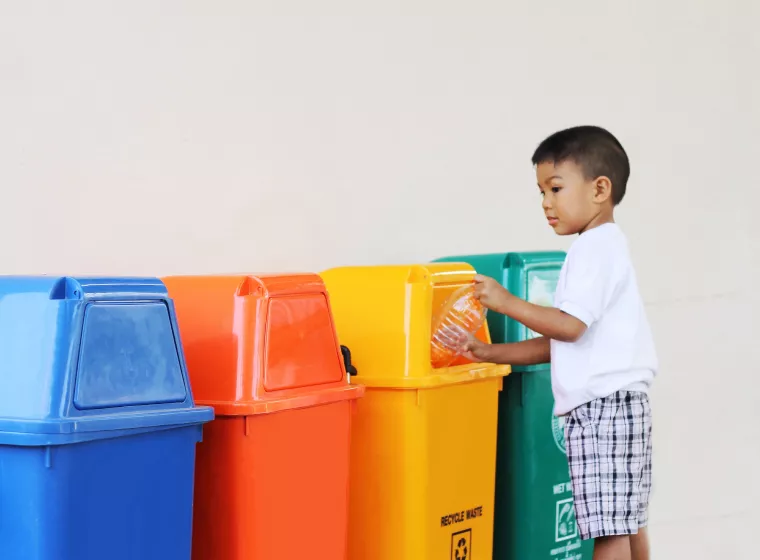November 26, 2025
Amended Chapter 173-337 WAC: Safer Products Restrictions and Reporting on PFAS places restrictive PFAS bans and/or reporting requirements on 12 consumer product categories
On Nov. 20, the Washington State Department of Ecology adopted amendments to Chapter 173-337 WAC to regulate intentionally added per- and polyfluoroalkyl substances (PFAS) in 12 categories of consumer products sold in Washington. The newly adopted rule restricts the intentional addition of PFAS in apparel and accessories, automotive washes, and cleaning products beginning Jan. 1, 2027.
The amended rule also requires manufacturers to report concentrations of intentionally added PFAS in 9 product categories: apparel intended for extreme and extended use, footwear, gear for recreation and travel, automotive waxes, ski waxes, floor waxes and polishes, hard surface sealers, cookware and kitchen supplies, and firefighting personal protective equipment. The reporting period opens Jan. 1, 2026, with reports due Jan. 31, 2027, and annually thereafter.
These reporting requirements and restrictions add to the first version of the rule adopted in 2023, which focused on intentionally added PFAS in aftermarket stain- and water-resistant treatments, carpets and rugs, and leather and textile furnishings.
Implementation deadlines for PFAS reporting
Beginning Jan. 1, 2026, manufacturers (or trade organizations representing manufacturers) must identify and track PFAS in consumer products that fall within the specified product categories with new reporting requirements in this rule. Manufacturers must report concentration ranges of the intentionally added PFAS within products, with a de minimis threshold of 50 ppm total fluorine for all product categories. The Washington Department of Ecology presumes that the detection of total fluorine above 50 ppm indicates the intentional introduction of PFAS and says manufacturers can rebut this presumption by submitting a statement supported by "credible evidence" that PFAS were not intentionally added to the product. Manufacturers' reports are due beginning Jan. 31, 2027, and every year thereafter by Jan. 31.
A manufacturer violating these restrictions and reporting requirements is subject to a civil penalty not to exceed $5,000 for each violation in the case of a first offense (what constitutes an "offense" is not further clarified in the regulation). Repeat violators are subject to a civil penalty not to exceed $10,000 for each repeat offense.
What this means for manufacturers of listed products
Washington is joining New Mexico, Maine, and Minnesota as states with reporting requirements for PFAS in consumer products. Unlike these others states with similar rules, Washington did not include a currently unavoidable use (CUU) process for exemptions in the rule. Washington will consider individual exemption requests, which are evaluated on a case-by-case basis considering the functional necessity of PFAS in the product, feasibility of legal compliance, and potential alternatives.
Washington's rule defines PFAS as a "class of fluorinated organic chemicals containing at least one fully fluorinated carbon atom," encompassing a large number of fluorinated chemistries that are restricted/reportable. The addition of the strict de minimis threshold of 50 ppm total fluorine may present compliance challenges since the measurement of total fluorine may also include inorganic fluoride, which can be naturally present in products from numerous sources. Further, Washington does not specify a recommended analytical method for total fluorine. There is not currently a standardized method available for total fluorine in consumer products.
The rule also defines "intentionally added" as a PFAS "that serves an intended function in the final product or in the manufacturing of the product or part of the product." Additionally, PFAS that are "present from the use of recycled materials are not considered an "intentionally added priority chemical."
Combined, this means that manufacturers must be able to distinguish compounds that meet the state's broad definition of a PFAS from other compounds that may contain fluorine. Manufacturers who identify PFAS in their products may need to determine whether the PFAS is present intentionally or unintentionally, such as through contamination from use of recycled material or impacted process water.
Compliance with state-level PFAS regulations can be complicated, including identifying PFAS in complex supply chains, ensuring accurate reporting across multiple product categories, and meeting strict deadlines for restrictions and reporting. To prepare for compliance with the Final rule for Chapter 173-337 WAC for Safer Products, Restrictions and Reporting, consumer product manufacturers can review product definitions, formulations, and ingredients and begin communicating obligations with supply chains.
What Can We Help You Solve?
Exponent's multidisciplinary team of consultants helps clients navigate evolving state, national, and global regulations by identifying PFAS in products, processes, supply chains, and waste streams. Our experts support PFAS testing, perform alternatives analysis, evaluate treatment options, and help inform decisions that balance regulatory compliance and product performance.

PFAS Consulting Services
Manage PFAS in your products, supply chains, and waste streams.

Environmental & Earth Sciences
Understand how your business impacts the environment and mitigate damage and environmental risk.

Product Stewardship
Overcome business and regulatory challenges at every stage, from research and design to disposal and recycling.

Environmental & Regulatory Compliance
Rigorous analyses to help clients overcome complex environmental and regulatory hurdles and meet auditing obligations.

Plastics in the Environment
Develop proactive plans to mitigate the environmental impact of polymer and plastic waste.

Emerging Contaminants
Exponent helps clients with chemical regulatory compliance, supply chain assessments, and mitigation and substitution strategies for CECs.





